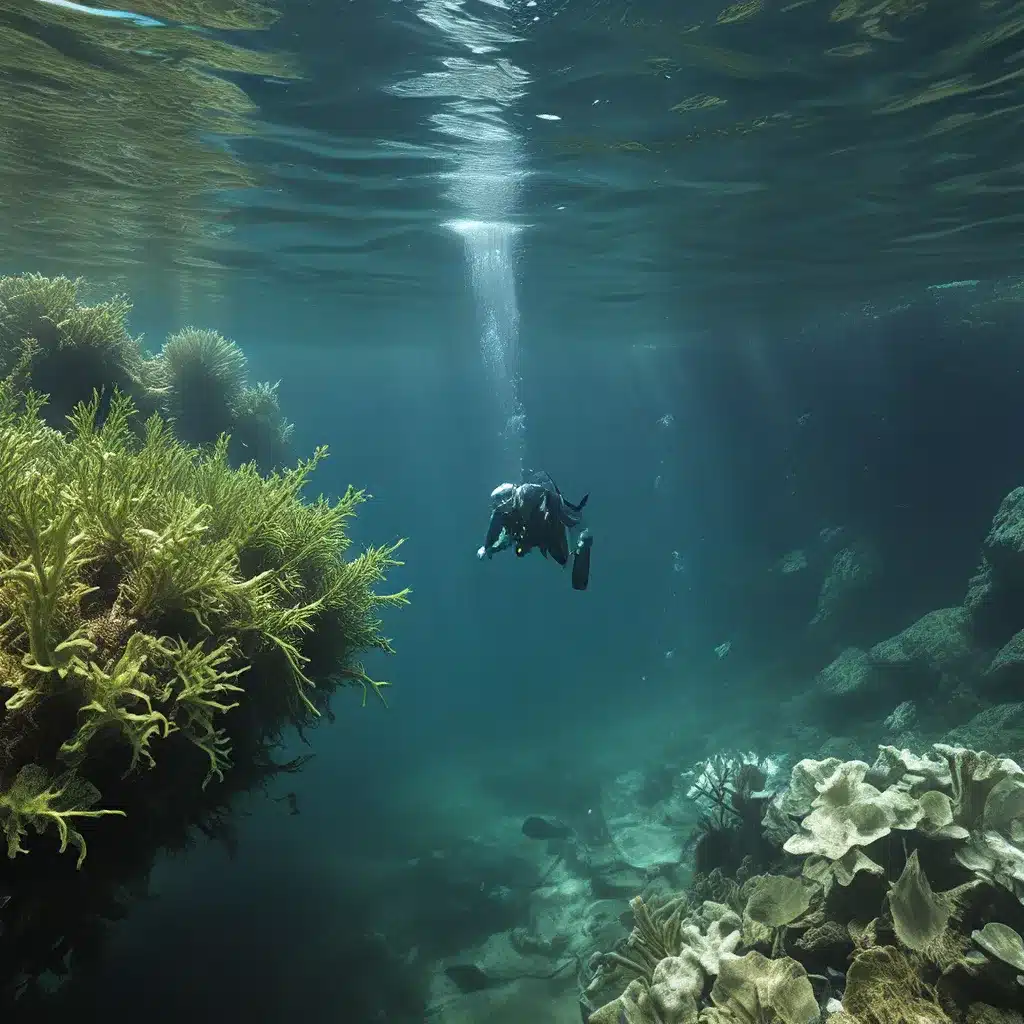
As I strap on my scuba gear and take a deep breath, I can’t help but feel a palpable sense of excitement. The world of water treatment and environmental services is undergoing a remarkable transformation, with disruptive innovations reshaping the landscape in ways that were unimaginable just a few years ago. And I’m thrilled to be your guide as we dive headfirst into this fascinating journey.
Charting the Uncharted: Emerging Trends in Water Treatment
Let’s start by taking a look at some of the key trends that are defining the future of water treatment. According to a report by the Global Trends 2040 initiative, the world is facing a perfect storm of challenges, from population growth and urbanization to climate change and resource depletion. These factors are placing unprecedented stress on our water systems, and the need for innovative solutions has never been more pressing.
One of the most promising areas of development is the rise of smart water technologies. By integrating advanced sensors, data analytics, and AI-powered automation, water utilities are able to optimize their operations and respond to emerging threats in real-time. BlueTech Research has been at the forefront of this trend, tracking the adoption of smart water solutions and the resulting impact on the industry.
Another key trend is the growing emphasis on water reuse and resource recovery. As fresh water becomes increasingly scarce, more and more communities are turning to cutting-edge technologies like membrane filtration, anaerobic digestion, and nutrient recovery to extract valuable resources from wastewater. This not only reduces the strain on our water supplies but also creates new revenue streams for environmental services providers.
Diving into the Disruptive: Breakthrough Technologies Reshaping the Industry
Now, let’s take a deeper dive into some of the most exciting disruptive innovations that are transforming the water treatment and environmental services landscape.
Harnessing the Power of Hydrogen
One of the most intriguing developments is the rise of net-zero hydrogen as a solution for hard-to-decarbonize industries. According to BlueTech Research, as much as a third of global greenhouse gas emissions have no other decarbonization solution other than the use of net-zero hydrogen. This includes sectors like aluminum, aviation, chemicals, concrete, shipping, and steel – all of which are crucial to the environmental services ecosystem.
Imagine a future where wastewater treatment plants not only clean our water but also generate clean, renewable hydrogen to power the very industries that depend on them. It’s a tantalizing prospect that is capturing the attention of innovators and policymakers alike.
Artificial Intelligence: The Water Whisperer
Another transformative technology is artificial intelligence (AI). According to a recent press release from DDN, AI-powered solutions are already making waves in the water industry, revolutionizing everything from data analytics to predictive maintenance.
Just picture it: a water treatment facility where AI algorithms can sift through mountains of sensor data, detect emerging issues, and automatically adjust operations to optimize efficiency and reduce energy consumption. It’s a vision that is rapidly becoming a reality, thanks to the rapid advancements in AI and the growing integration of this technology into the water sector.
Floating Ecosystems: The Future of Water Treatment?
And let’s not forget about the exciting potential of floating aquatic ecosystems. As BlueTech Research has highlighted, these innovative systems use natural biological processes to treat wastewater and recover valuable resources, all while providing a habitat for aquatic life.
Imagine a future where water treatment facilities are transformed into thriving eco-parks, where advanced technologies and nature-based solutions work in harmony to address our most pressing environmental challenges. It’s a captivating idea that is already being explored by forward-thinking water agencies and environmental services providers.
Navigating the Tides of Change: Challenges and Opportunities Ahead
Of course, with any transformative change, there are always challenges to overcome. As we navigate the uncharted waters of the future, we must grapple with issues like regulatory uncertainty, technological integration, and public acceptance.
For example, the emergence of generative AI and large language models (LLMs) has opened up a world of possibilities in the water sector, but it has also raised important questions about data privacy, algorithmic bias, and the ethical implications of these powerful technologies. BlueTech Research has been at the forefront of exploring these issues, providing valuable insights and guidance to help water professionals navigate this complex landscape.
At the same time, the rapidly evolving nature of the water treatment and environmental services industry means that companies must be agile, innovative, and willing to take risks. Those who are able to embrace these challenges and seize the opportunities presented by disruptive technologies will be the ones who thrive in the years to come.
Charting a Course for the Future: Inland Waters’ Role in the Water Revolution
As I begin to surface from my metaphorical dive, I can’t help but feel a renewed sense of optimism for the future of water treatment and environmental services. The disruptive innovations we’ve explored today are just the tip of the iceberg, and I can’t wait to see what the future holds.
And that’s where Inland Waters Inc. comes in. As a leading provider of water treatment and environmental services, Inland Waters is at the forefront of this rapidly evolving industry. With a commitment to innovation, a focus on sustainability, and a passion for solving the world’s most pressing water challenges, Inland Waters is poised to play a crucial role in shaping the future of this vital sector.
So, my friends, let’s keep our fins up and our eyes on the horizon. The future of water is bright, and we’re just getting started.


